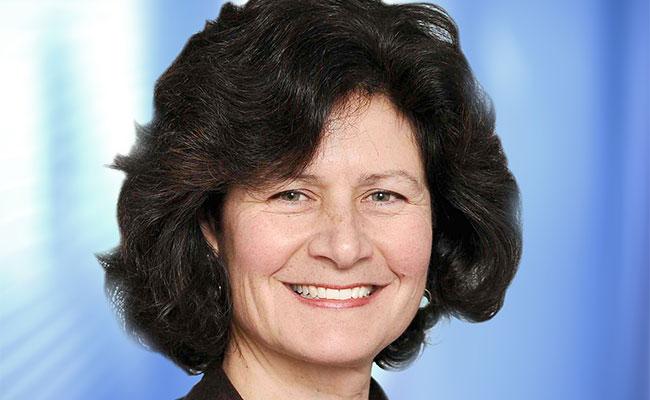Tetra Tech's Debra Darby Discusses Sustainable Organics Solutions
Meeting our clients’ organics management and sustainability goals

Tetra Tech’s Debra Darby, manager of organics sustainability solutions, has 14 years of organics experience in the solid waste industry. She is a certified composting professional and has garnered a reputation as a leader in her field through her extensive background working with organics and compostable materials and driving product stewardship. In addition to her technical expertise, Debra also has 20 years of experience in marketing and has served as a strategic advisor in the public and private sector. Her capabilities help expand Tetra Tech’s outreach in the rapidly growing organics market. As Tetra Tech’s organics lead, Debra is involved with developing, planning, permitting, and the operations of organics materials management systems.
Debra’s background is a significant asset in Tetra Tech’s organic waste planning. She works closely with our clients to implement innovative strategies for diverting organic material from the solid waste stream. She designs and implements organics recycling programs and technologies, including composting and anaerobic digestion, assisting both private and public sectors in reaching their sustainability and zero waste goals. She holds a master’s degree in pollution prevention from the University of Massachusetts Lowell.
What led you to a career in organics and sustainability?
In 2006 I was hired as a director by a pioneering plant science biotechnology company to brand and commercialize the company’s first commercial polyhydroxyalkanoates (PHA) bioplastic made from naturally occurring microbes for use in consumer packaging and product applications. That position began my involvement with green chemistry, organics recycling, composting, and sustainable materials management within the solid waste industry.
What are some of the newest developments in organics and sustainability?
As both the public and private sectors look for ways to reduce carbon emissions, there is a growing interest in organics recycling programs and composting operations to help with carbon sequestration. For states and municipalities looking to implement zero waste strategies, organics is one of the primary materials to divert from the solid waste stream. High recycling goals cannot be reached without managing the considerable organics fraction that is 30 percent of the municipal solid waste stream. Even for locations that have addressed recycling or made other progress, this is often a largely untapped area.
What considerations are included when working on organics projects in different geographic regions?
There are many considerations in the planning, development, and operations of organics projects. These considerations include siting, state and municipal regulations, available feedstocks, and population density and commercial demographics of surrounding neighborhoods and businesses. All these factors provide meaningful data in determining what type of organics project is needed to service the area. For example, a community-based composting operation or commercial composting facility that can service a larger population or co-locating an organics recycling operation at an existing solid waste facility location. Most projects are scalable if properly designed.
What are some of the major challenges and complexities facing organics and sustainability projects today?
A major challenge in securing a commitment to a new paradigm of solid waste management, which is precisely what organics diversion involves, is that it requires a certain amount of time and effort to educate stakeholders about the environmental benefits of organics recycling. Implementing an organics recycling program requires the source separation of organics by both residents and commercial entities. All these activities require ongoing communication and education.
Everyone involved needs to have the desire to implement best practices, from reducing contamination to the collection of source-separated organics and creating a market for renewables such as compost or clean energy. Not all stakeholders will see the benefits right away, and managing organics costs money.
On the public learning curve, food waste recycling is where traditional recycling was in 1995. It is important to educate the public about the cost and benefit of organics recycling and be clear that the goal, regardless of the modest cost, is worth the effort.
There is growing voluntary interest around organic waste diversion. Private and public entities need to collaborate to pivot public thinking toward a sustainable flow of materials. This involves changes in public behavior in terms of consumption and disposal, where food waste is recycled back into the market with high-value use through composting and anaerobic digestion.
What changes have you seen in organics during your career?
There has been a growing interest in organics recycling in the public sector since 2010. We’re also seeing activity within the private sector to integrate composting operations as part of the solid waste infrastructure. This is driven by regulation in some parts of the United States, including the northeast where waste capacity is an issue. There also is an increasing awareness of the environmental benefits of source separating food scraps and directing this material for higher value use through composting, as well as anaerobic digestion that can bring marketable products including composts and biogas back into the market and replenish soils degraded by human activity.

